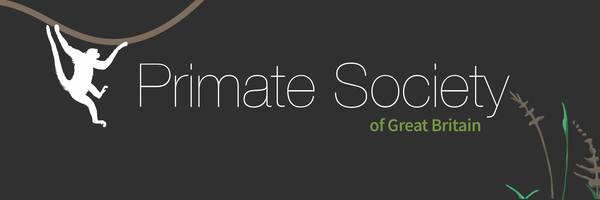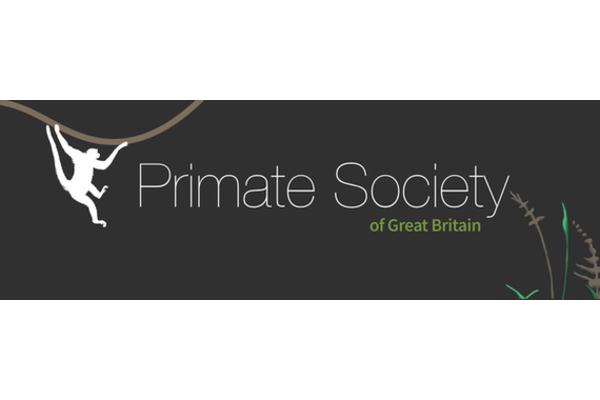
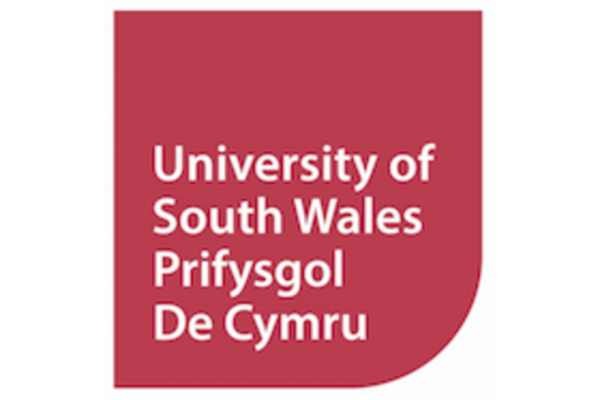
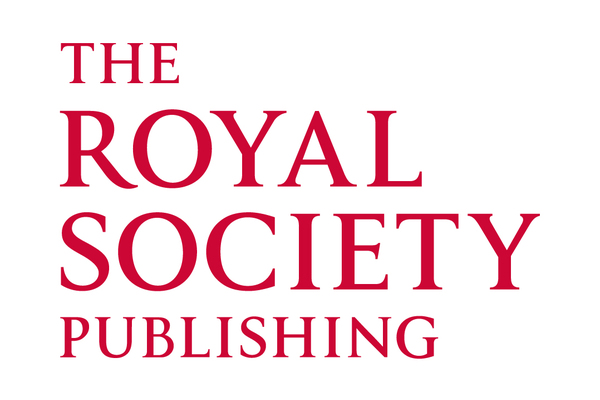


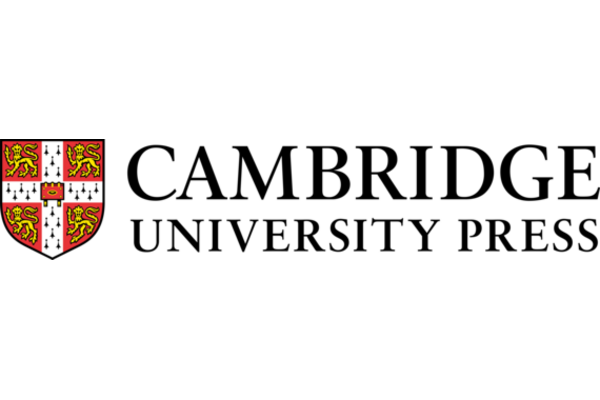

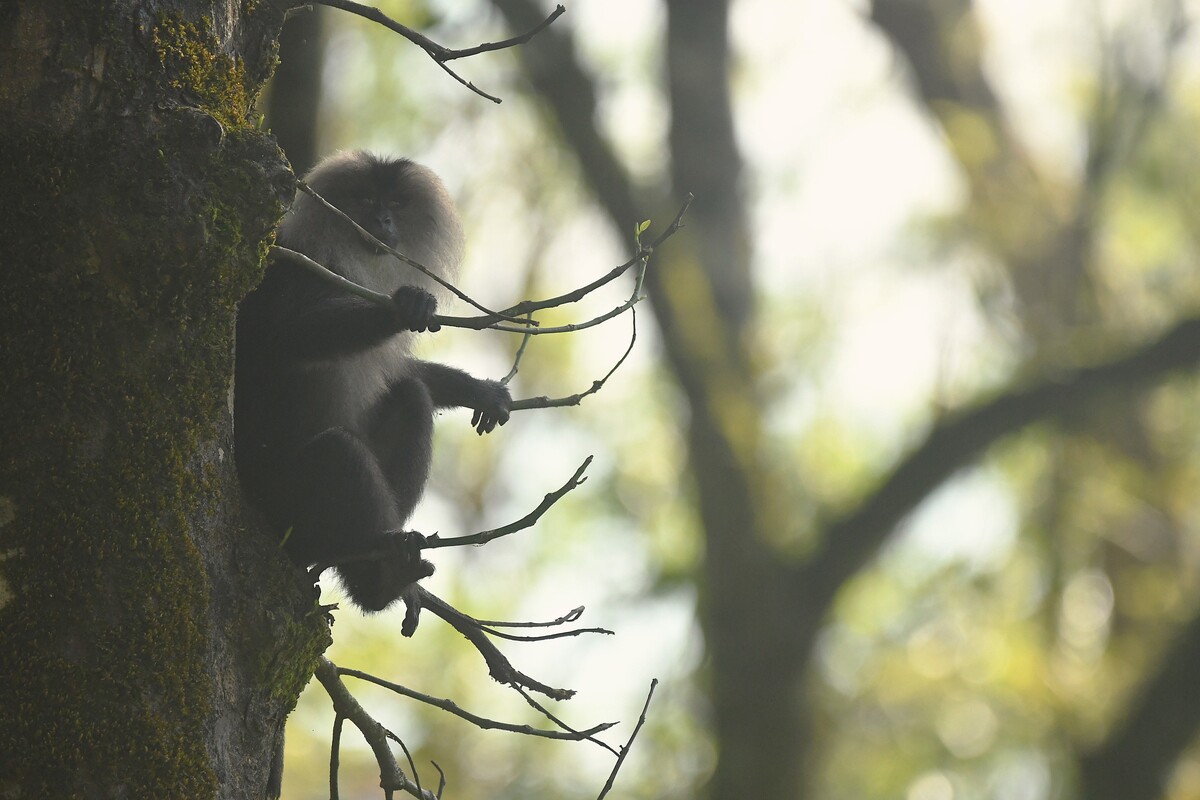
Tickets Now on Sale
Get ready for 2 days of cutting-edge research, engaging workshops, and opportunities for networking with fellow primatologists set against the backdrop of one of Wales’ most prestigious cultural institutions, the iconic National Museum Cardiff.
Thursday 27th 10:00am & Friday 28th November 09:30am
Get your tickets by visiting the PSGB events page or clicking the link below:
Booking Accommodation
Several hotels near the Cardiff Museum have offered special rates for conference attendees (whilst availability lasts):
- Hilton Cardiff Hotel Discount automatically applied using link. 15% off best available B&B rate.
- Leonardo Hotel Cardiff Use booking code LHUNSW271125 in the 'promo' or 'group code' box and then search using your dates of stay. £130/night B&B.
- Park Plaza Cardiff. All guests who wish to book will have to call the hotel in between 9am – 6pm Mon – Fri and quote the block ID (block: 862535) to book over the phone.
Travel Information
By Train
- The museum is a 20-25 minute walk from Cardiff Central station.
- The nearest station is Cathays, about a 5-minute walk from the museum.
By Car
- The closest parking to the museum can be found here.
- Click here to find additional parking in central Cardiff.
Accessibility
- The nearest train station (Cathays) is wheelchair/scooter accessible on the north-bound side (coming from Cardiff Central) but not on the south-bound side (coming from the Valleys). For more information about station accessibility, see here.
- There are public lifts between the main entrance and museum galleries and the conference space. In the conference space itself, please note there are a few steps between the cafe/reception area and the lecture theatre. A private lift is available in this area as well.
- We are committed to making this conference welcoming to everyone. Any guests with accessibility requirements are encouraged to contact [email protected] (preferably at least a week before the conference) so we can ensure accommodations are in place.
Food
- A hot catered lunch and coffee/tea for both days are included in the price of your ticket
- Our menu is plant-based and accommodates most diets. However, if you have specific dietary restrictions, please let us know at [email protected]
Around Cardiff
Restaurants
- There are many chain restaurants along Queen’s Street and around the Dewi Sant shopping centre
- Daffodil Cardiff - A short walk from the museum, this restaurant focuses on local suppliers and traditional Welsh foods. You will probably need reservations for dinner.
- Vegetarian Food Studio Cardiff - Further afield (half hour walk or public transport), but a locally-loved source of vast portions of all-vegetarian Indian food
Christmas
- Winter Wonderland, just outside the museum on the City Hall lawn.
- Cardiff outdoor Christmas Market, in the City Centre.
Local Attractions
- We are based in the conference/theatre space in the National Museum. The museum is open from 10-4 and includes natural history and art galleries. Entry is free except for special exhibits and events.
- Cardiff Castle.
- Cardiff Bay.
- The arcades, for independent shops and bars.
The Welsh Language
You do not need to speak Welsh to enjoy a visit to Wales. English is used everywhere in Cardiff, but you will hear Welsh occasionally and will see it posted alongside English notices on signs.
If you’d like to try out a few words of Welsh while you are here, check out the phrases below. Pob lwc!
Hello Helo/ Shwmae Heh-lo/ Shew-mae
Good morning Bore da Bor-eh dah
Goodbye Hwyl fawr Hoo-yl vah-ur
Thank you Diolch Dee-olch (ch like in “loch”)
Please Os gwelwch yn dda Oss goo-elch un tha
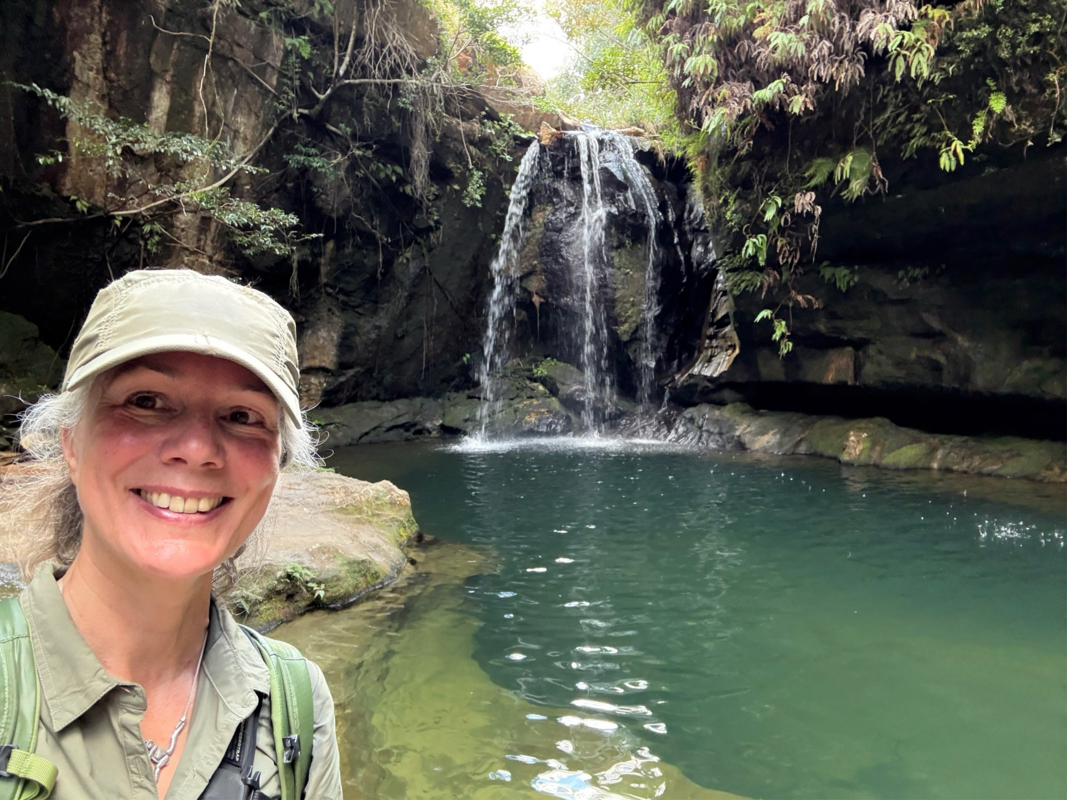
Plenary Speakers
Prof Joanna (Jo) M Setchell
Primatology: strengths and weaknesses of our discipline
I will reflect on the strengths and weaknesses of our discipline, based on what I have learned from my own studies of primates, mentoring other primatologists, as Editor-in-Chief of the International Journal of Primatology, and as a member of primatological societies including PSGB. Primatology is a taxon-based discipline, allowing us to draw on theory and methods from diverse fields. The variability in our research interests, study animals, and research sites means that there are no ‘off-the-shelf’ protocols for how to study primates. Asking good questions and designing appropriate studies to answer them are vital to produce high quality science. Primates are facing extinction, and to conserve them we need an evidence-base and an integrated biosocial approach. Finally, primatology has its roots in colonial endeavours and we must acknowledge ongoing colonial attitudes to collaborate more equitably. Doing so is not a simple task.
Bio:
Professor Jo Setchell is an internationally recognised primatologist whose work bridges evolutionary ecology, conservation, and ethics in scientific practice. She is Professor of Anthropology at Durham University, where she has been based since 2007. Jo earned her PhD in Zoology from the University of Cambridge and went on to hold postdoctoral positions at Roehampton University and Cambridge, followed by a lectureship at University College London.
Jo has studied mandrills for almost 30 years, in collaboration with staff at the Primate Centre in Franceville, Gabon, and many other researchers. This multidisciplinary work has addressed fundamental questions in sexual selection, signalling, reproductive strategies, life history, and phenotypic variation in primates. It has shown how broadening traditional perspectives on sexual selection reveals subtle and cryptic forms of competition and choice in both sexes.
Jo has also conducted fieldwork in Cameroon, the Republic of Congo, and Malaysia, and visited many other primate habitat countries. Convinced that conservation cannot succeed without understanding the cultural, ethical, and political contexts, she promotes a biosocial approach to understanding our relationships with our fellow primates.
Beyond her scholarship, Jo is deeply engaged in the ethics and future of primatology. She has helped shape best practice guidelines for the discipline, championed equity and inclusion, and contributed to conversations about ‘decolonising’ primatology and conservation. Her leadership roles include serving as President of the Primate Society of Great Britain and Vice-President for Research of the International Primatological Society.
As Editor-in-Chief of the International Journal of Primatology, Jo has handled ~2500 manuscripts. She has championed rigorous, ethical, and inclusive science. Her editorial experience inspired her book, Studying Primates, a guide to developing research questions designing studies, and reporting results. Studying Primates is currently available in English, French and Indonesian, with translations into Spanish, Portuguese, Vietnamese and Thai to come.
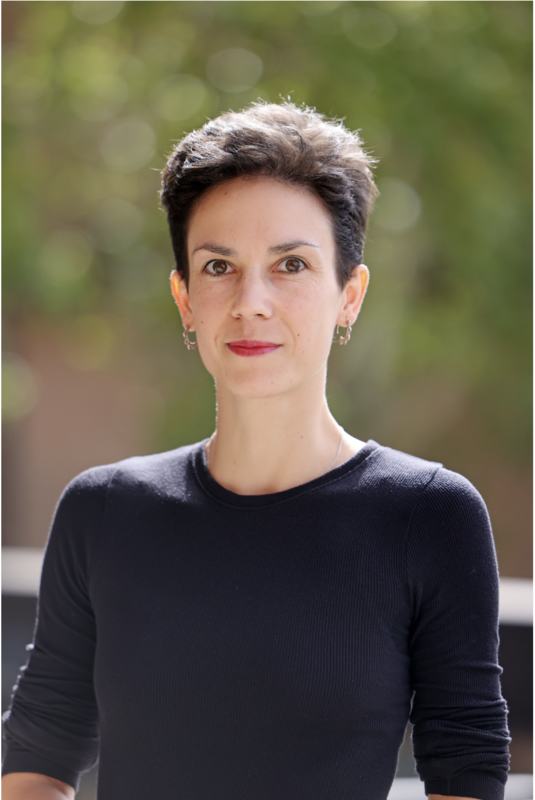
Dr Cécile Sarabian
Behavioural and cognitive immunity in primates
Risk perception — an individual’s sensitivity to potential threats such as disease, predation, or competition — has shaped the physiology, cognition, and behaviour of animals for millions of years. While much research has focused on responses to lethal threats (e.g., predators), only recently have we begun to understand how animals, particularly our closest primate relatives, detect and mitigate disease risk. Disgust, a neurobiological and evolutionarily conserved system, underpins a key form of behavioural immunity — a set of avoidance mechanisms that protect hosts from infection along physiological defences. Through a series of experimental and observational studies, I addressed five questions: (1) What triggers avoidance in non-human primates (NHPs)? (2) Does disgust confer health benefits? (3) Is disgust learned? (4) Are there cognitive markers of disgust? and (5) How can disgust be applied beyond the laboratory? Our findings reveal that (1) NHPs show aversion to sensory cues linked to biological contaminants and infection risk; (2) individuals avoiding contaminated food exhibit lower parasite loads; (3) disgust is partly learned and may interact with physiological immunity; and (4) different types of risk (infection vs. predation) engage distinct cognitive pathways. Together, these results support the concept of behavioural and cognitive immunity as an adaptive interface between emotion, cognition, and health. Finally, I explore how this framework can be applied across contexts. While disgust-based avoidance has been used in public health and consumer choice, its potential extends to wildlife management, conservation, and animal welfare. Building on this theoretical foundation, my current projects investigate how leveraging the protective phenotypes of NHPs and humans may reduce harmful human–wildlife interactions. I will introduce several applied contexts and discuss key challenges in translating emotional and cognitive mechanisms into practical conservation tools for primates.
Bio:
Dr. Cécile Sarabian is a cognitive ecologist whose research investigates the evolutionary origins of disgust and how primates — including humans — avoid parasites and pathogens. Her work bridges primatology, behavioural ecology and evolutionary psychology, exploring how emotions such as disgust and fear have evolved as adaptive mechanisms to manage ecological risks, mediate social behaviour, and shape the interface between health, ecology, and culture.
She earned her PhD from Kyoto University in 2019 and has since held postdoctoral positions at Kyoto University, Nagoya University, The University of Hong Kong, and the Institute for Advanced Study in Toulouse. She is currently a UKRI/Marie Skłodowska-Curie Research Fellow at Swansea University, working within the Biosciences Department.
Cécile’s early work focused on parasite avoidance strategies in non-human primates — which lacked empirical data at the time. She combines behavioural observation and experimental approaches to uncover how individuals assess contamination risk and how avoidance develop. Her current projects examine how chacma baboons adapt to both disease and predation risks, and how these insights can inform human–wildlife coexistence and conservation management. In parallel, she leads comparative projects investigating behavioural, cognitive and physiological responses to natural disease reservoirs such as bats and rodents in humans and chimpanzees.
Beyond her research, Cécile is deeply engaged in interdisciplinary collaboration and public science communication. She has worked with journalists, NGOs and museums to bring the science of disgust and risk perception to broader audiences, fostering public engagement with cognitive ecology and evolution.
Her work continues to challenge traditional disciplinary boundaries, highlighting the value of integrating proximate (mechanistic) and ultimate (evolutionary) perspectives to better understand how emotion, cognition, and ecology interact across species.
For more information, visit www.cecilesarabian.com
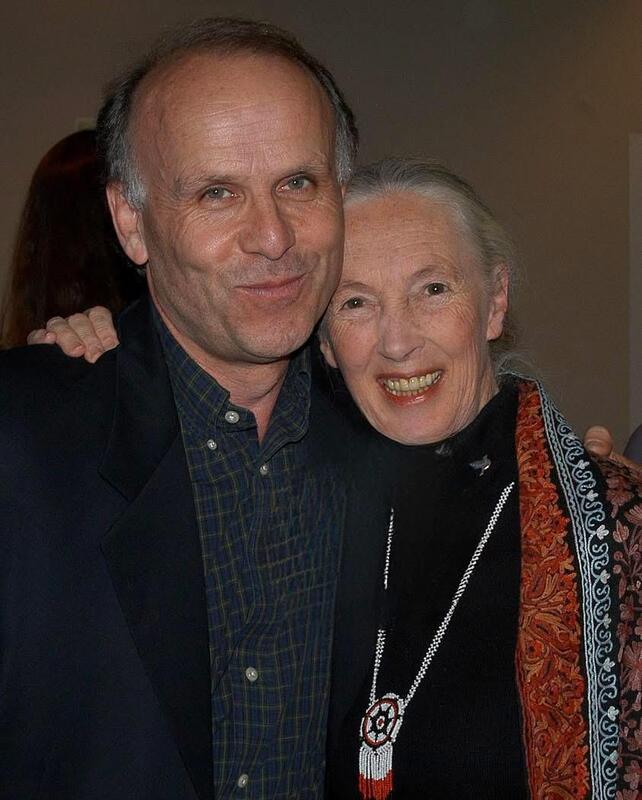
Jane Goodall Memorial Lecture
Prof Richard Wrangham
Jane Goodall: The Icon and the Person
Jane Goodall’s studies of chimpanzees, her concern for all living things, and the profound influence she has had on both scientists and the general public, leave no doubt about the exceptional nature of her achievements. But in her own mind there were two different versions of herself, the icon Jane and the real Jane, and she expressed puzzlement as to why the icon Jane inspired such intense and passionate worldwide approval. I will review Jane Goodall’s career as a primatologist, conservationist, humanitarian and setter of ethical standards, and ask if there is really any basis for her being puzzled.
Bio:
Richard Wrangham is the Ruth Moore Professor Emeritus of Biological Anthropology in the Department of Human Evolutionary Biology at Harvard University. His major interests are the evolution of chimpanzee and human behavior. He studied chimpanzees in Tanzania with Jane Goodall in the 1970s, and then in Kibale National Park, Uganda for the last 38 years. He taught at the University of Michigan from 1981 to 1989, and at Harvard University from 1989 to 2020. A former President of the International Primatological Society (2004-2008), since 2006 he has been an Ambassador for UNEP/UNESCO’s Great Ape Survival Project (GRASP). His most recent book is The Goodness Paradox: The Strange Relationship Between Virtue and Violence in Human Evolution (2019).
Have you thought about organising a PSGB meeting?
Please get in contact if you or your organisation would like to host the next PSGB meeting!
Organising a meeting will not only help PSGB, but will also provide you with opportunities to create a partially themed meeting that may have a particular bearing on your own work, or to invite speakers who have inspired your own research. It is also fun! You do not need to have a PhD; postgraduate students are just as welcome. Showing you have organised a scientific meeting will looks great on your CV.
We have guidelines that can help you plan and structure your meeting and a team of experienced people who can provide you with advice.
If you would like organise a future meeting (summer or winter), please contact our Meetings Officer, Shannon Farrington ([email protected]) to talk about what is involved or to be inspired by past programmes from past meetings.
